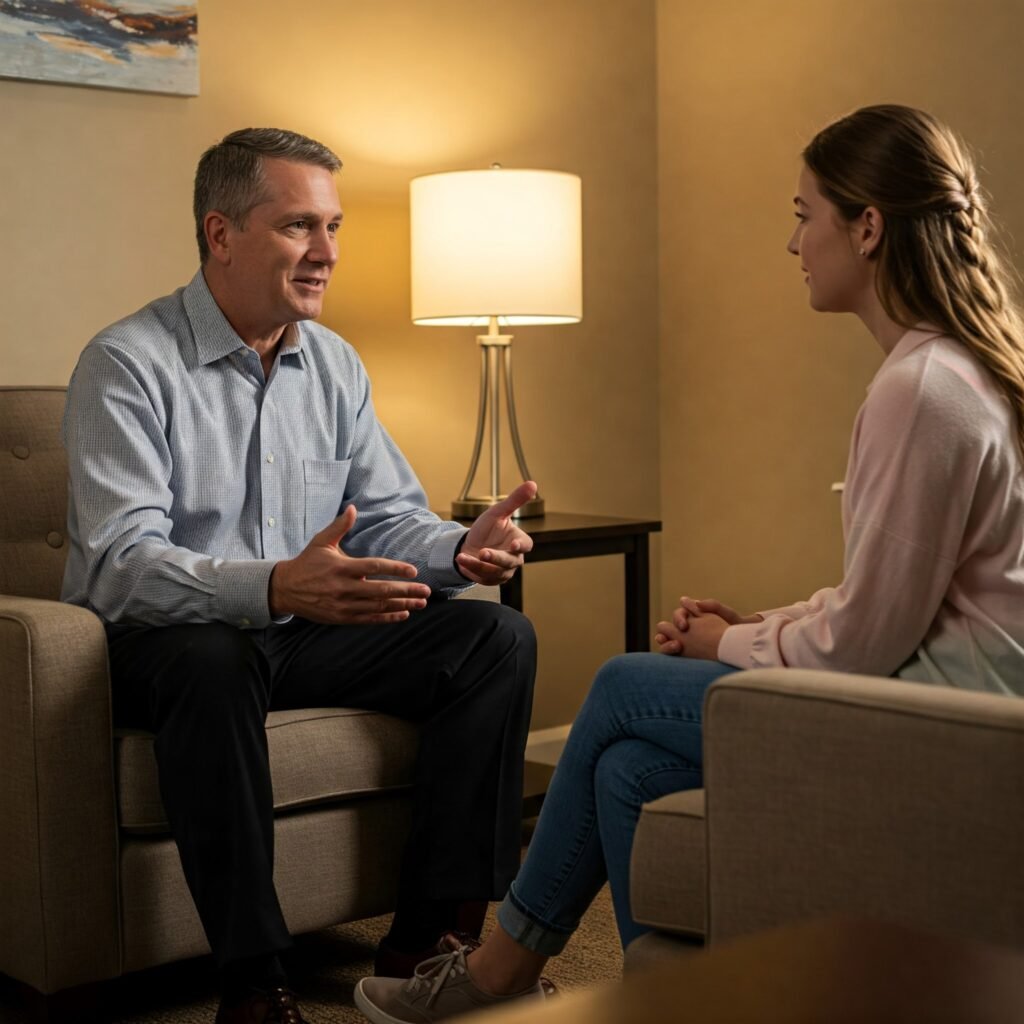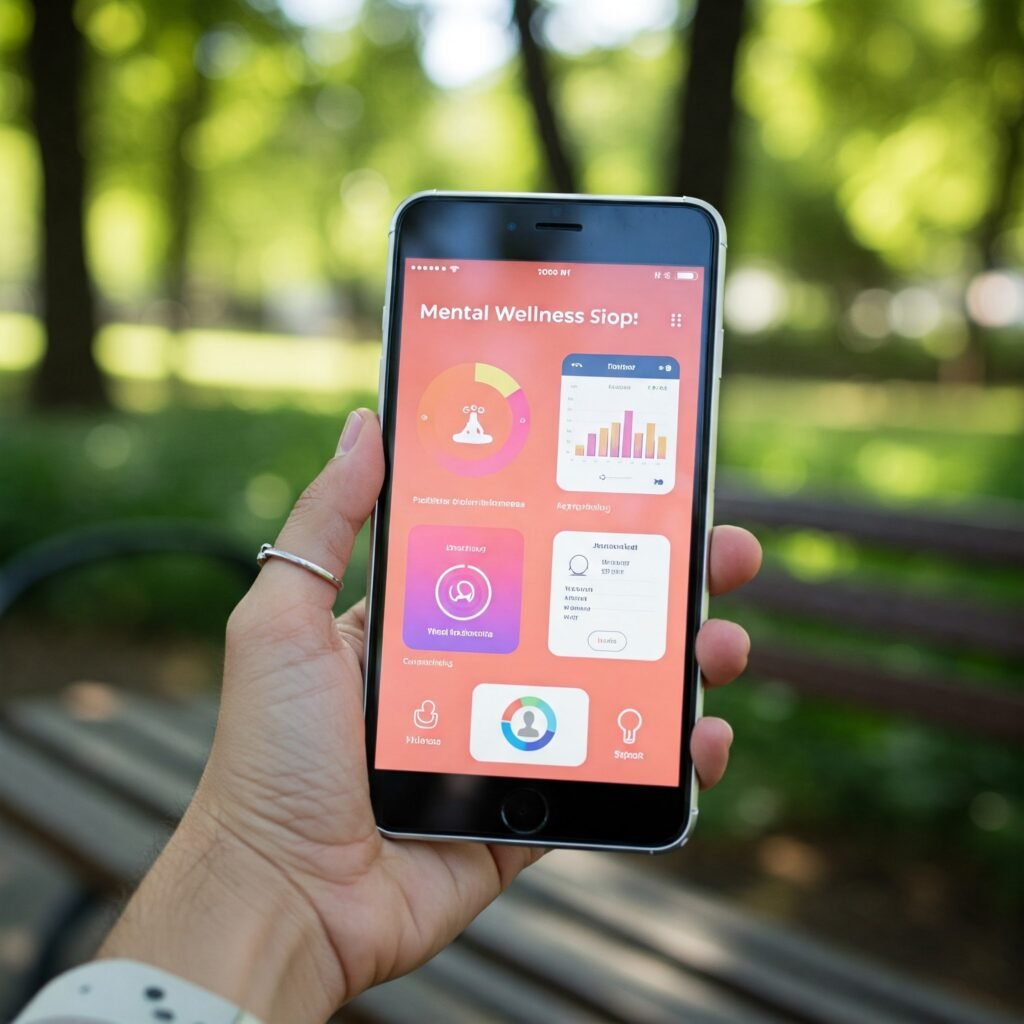Hey there. Let’s talk honestly for a moment. In today’s fast-paced world, it feels like we’re all juggling a hundred things at once. Stress, anxiety, feeling overwhelmed – these aren’t just buzzwords; they’re real experiences many of us face daily. But here’s the good news: you absolutely do not have to navigate these challenges alone. There are incredible Top Mental Health Resources You Should Be Using Right Now that can provide genuine support, guidance, and practical tools to help you feel better and build resilience.
Maybe you’ve thought about seeking help but didn’t know where to start, or perhaps you’re looking for new ways to boost your mental wellness. Whatever your situation, understanding and accessing the right resources is a powerful step. This guide is designed to cut through the noise and highlight some of the most effective avenues for support available to you right now.
Why Exploring Top Mental Health Resources is More Important Than Ever
The conversation around mental health has thankfully opened up significantly. The stigma is reducing, and people are realizing that tending to their mental well-being is just as crucial as physical health. Life throws curveballs – job changes, relationship shifts, global events, or just the daily grind – and having a toolkit of reliable support is essential. Proactively exploring Top Mental Health Resources isn’t a sign of weakness; it’s a sign of strength and self-awareness. It’s about equipping yourself to handle life’s challenges more effectively and live a more fulfilling life.
Top Mental Health Resources: Professional Pathways
Sometimes, the most effective support comes from trained professionals. Connecting with a therapist or counselor can offer personalized strategies and a safe space to explore your thoughts and feelings.
Finding a Therapist: A Key Top Mental Health Resource
Finding the right therapist might feel daunting, but it’s a profoundly rewarding step. Therapists offer various approaches like Cognitive Behavioral Therapy (CBT), Dialectical Behavior Therapy (DBT), or psychodynamic therapy, tailoring their methods to your specific needs.
- How to Find One: Psychology Today, GoodTherapy, and Zocdoc offer extensive directories where you can filter by location, insurance, specialty, and therapeutic approach. Your primary care doctor can also provide referrals.
- What to Look For: Consider their experience, specialty (e.g., anxiety, trauma, relationship issues), and whether you feel a connection during an initial consultation. It’s okay to meet with a few therapists before finding your best fit.

Online Therapy: An Accessible Top Mental Health Resource
Online therapy platforms have revolutionized access to care. They offer flexibility and convenience, allowing you to connect with licensed therapists from the comfort of your home.
- Benefits: Ideal for busy schedules, those in rural areas, or people who prefer the anonymity and comfort of their own space. Many platforms offer subscription models that can sometimes be more affordable than traditional in-person sessions.
- Considerations: Ensure the platform uses licensed professionals and understands how billing and insurance work.
[Outbound Link: Anchor Text: Guide to Choosing Online Therapy from a reputable mental health organization like NAMI or SAMHSA]
Top Mental Health Resources: Digital & Community Support
Beyond one-on-one therapy, technology and community connections offer powerful ways to support your mental health daily.
Wellness Apps: A Handy Top Mental Health Resource
Your smartphone can be a gateway to support with a plethora of mental wellness apps. These apps offer tools for mindfulness, meditation, mood tracking, and anxiety relief.
- Types of Apps:
- Meditation & Mindfulness: Guided meditations, breathing exercises (e.g., Calm, Headspace – or apps offering similar functions).
- Mood Tracking: Journaling prompts, mood logging to identify patterns.
- CBT & Skills Training: Exercises based on therapeutic techniques to challenge negative thoughts or learn coping skills.
- Finding the Right App: Many offer free trials. Look for apps backed by mental health professionals or research.

Online Communities: A Connecting Top Mental Health Resource
Connecting with others who share similar experiences can be incredibly validating. Online support groups and forums provide spaces to share struggles, offer encouragement, and learn from peers.
- Benefits: Reduces feelings of isolation, offers practical tips from lived experience, and fosters a sense of belonging.
- Important Note: Online communities are not a substitute for professional help, especially in times of crisis. Always prioritize licensed care for severe or persistent issues.
Top Mental Health Resources: Crisis Help
For moments of acute distress or crisis, immediate help is available and essential.
Crisis Hotlines: An Essential Top Mental Health Resource
If you are experiencing a mental health crisis, feeling suicidal, or need immediate support, crisis hotlines and text lines are available 24/7. These services are free, confidential, and staffed by trained counselors who can provide immediate support and resources.
- When to Use: Feeling overwhelmed, having suicidal thoughts, experiencing a panic attack you can’t manage, needing someone to talk to right now.
- How They Help: They offer a listening ear without judgment, help you de-escalate, and connect you with local resources if needed.
[Outbound Link: Anchor Text: National Crisis and Suicide Lifeline – Call or text 988 in the US and Canada]
Top Mental Health Resources: Everyday Wellness
Mental health isn’t just about managing crises; it’s also about building daily habits that support your well-being. These are foundational Top Mental Health Resources you can use every single day.
Mindfulness: A Daily Top Mental Health Resource
Practicing mindfulness means paying attention to the present moment without judgment. It can reduce stress and improve your overall sense of calm.
- Simple Practices: Deep breathing exercises, mindful walking, paying attention to sensations while eating or drinking, short guided meditations. Even a few minutes a day can make a difference.

Healthy Habits: Foundational Top Mental Health Resources
Taking care of your physical health has a direct impact on your mental state.
- Exercise: Regular physical activity can significantly reduce symptoms of anxiety and depression. Even a short walk helps!
- Nutrition: Eating balanced meals and staying hydrated fuels your brain and body.
- Sleep: Aim for consistent, quality sleep. It’s crucial for emotional regulation and cognitive function.
Social Support: A Vital Top Mental Health Resource
Maintaining connections with friends, family, or support groups provides a crucial buffer against stress and loneliness. Sharing your feelings with trusted individuals can lighten your burden and offer new perspectives.
How to Choose the Right Top Mental Health Resources for You
With so many options, how do you pick? Start small. Consider:
- Your Needs: What are you struggling with? (Anxiety, stress, specific issue?)
- Accessibility: What fits your schedule and location?
- Budget: Are you looking for free, affordable, or covered-by-insurance options?
- Preference: Do you prefer talking one-on-one, using digital tools, or connecting with peers?
It’s okay to try different Top Mental Health Resources until you find what resonates. What works for one person might not work for another, and your needs might change over time.
Taking Action: Accessing Top Mental Health Resources You Should Be Using Right Now
Prioritizing your mental health is one of the best investments you can make in yourself. The Top Mental Health Resources You Should Be Using Right Now are diverse and accessible, offering pathways to support whether you’re dealing with significant challenges or simply looking to enhance your daily well-being.
Don’t wait until things feel unmanageable. Explore the options discussed above, reach out for help if you need it, and remember that seeking support is a sign of strength. You deserve to feel well.
































